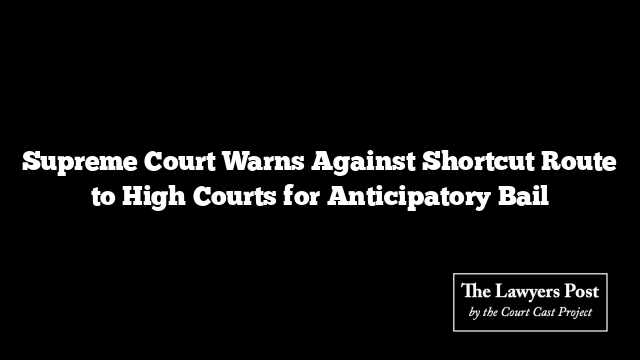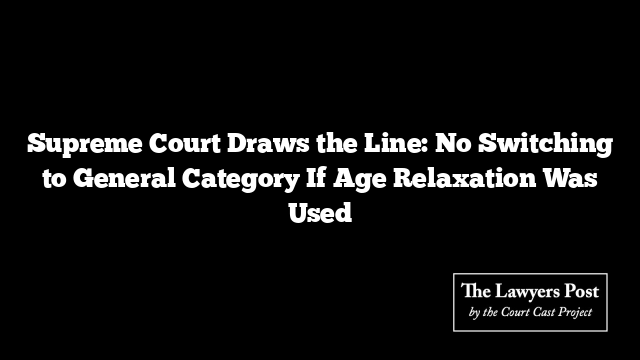The Supreme Court has raised a red flag over a growing trend—accused persons skipping the Sessions Court and rushing straight to High Courts for anticipatory bail. Calling the practice problematic, the apex court issued notice to the Kerala High Court after one such order came under challenge.
A bench of Justices Vikram Nath and Sandeep Mehta underscored that while the law grants concurrent powers to both Sessions Courts and High Courts in anticipatory bail matters, hierarchy must be respected. The High Court, they said, should step in directly only under rare and extraordinary circumstances, and even then, with detailed reasons recorded.
The Court observed that if direct filings before High Courts become the norm, these courts would be “flooded” with applications, creating chaos. Sessions Courts, the judges pointed out, are better positioned to handle the first layer of scrutiny—given their immediate access to case diaries and local public prosecutors. This, in their words, creates a natural “filter” that prevents unnecessary burden on High Courts.
“The hierarchy of courts cannot be bypassed. Sessions Judges, with their proximity to the facts and materials, are equipped to evaluate such pleas far more efficiently,” the bench noted.
Senior Advocate Sidharth Luthra, assisted by Advocate G. Arudhra Rao, has been appointed amicus curiae to assist in the matter.
The Court also acknowledged that many High Courts already follow the rule of first knocking at the Sessions Court’s door, with exceptions carved out only for extraordinary cases. Still, the bench hinted that a clear standard is necessary to avoid confusion and misuse.
Interestingly, just last month, another bench of the Supreme Court had taken a different view—stating that it was not mandatory for an accused to first approach the Sessions Court. That decision, which overturned an Allahabad High Court order, adds another layer to the ongoing debate over procedural hierarchy in anticipatory bail.





